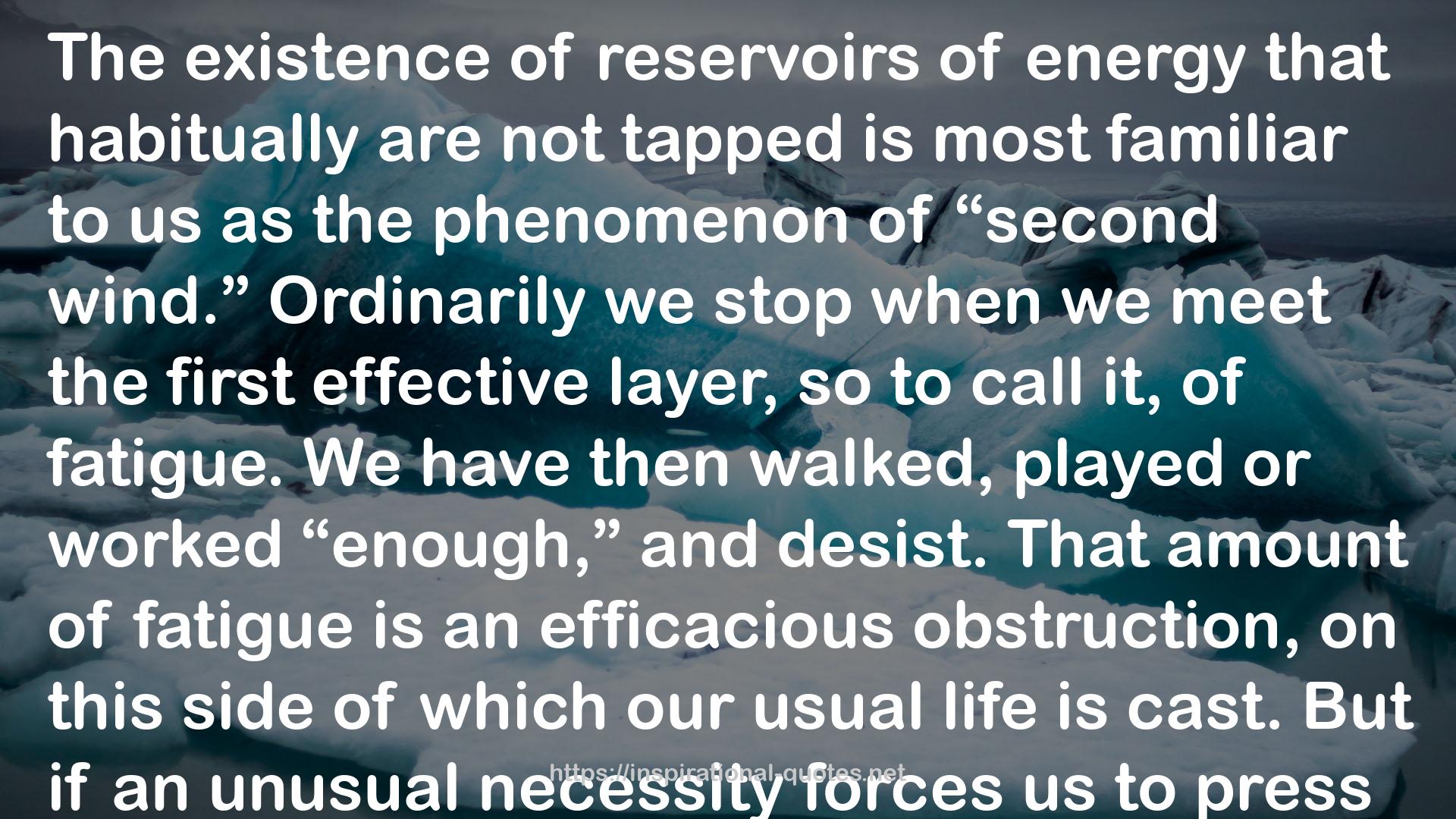" The existence of reservoirs of energy that habitually are not tapped is most familiar to us as the phenomenon of “second wind.” Ordinarily we stop when we meet the first effective layer, so to call it, of fatigue. We have then walked, played or worked “enough,” and desist. That amount of fatigue is an efficacious obstruction, on this side of which our usual life is cast. But if an unusual necessity forces us to press onward, a surprising thing occurs. The fatigue gets worse up to a certain critical point, when gradually or suddenly it passes away, and we are fresher than before. We have evidently tapped a new level of energy. There may be layer after layer of this experience. A third and a fourth “wind” may supervene. Mental activity shows the phenomenon as well as physical, and in exceptional cases we may find, beyond the very extremity of fatigue-distress, amounts of ease and power that we never dreamed ourselves to own—sources of strength habitually not taxed at all, because habitually we never push through the obstruction, never pass those early critical points.37 "
― Steven Kotler , The Art of Impossible: A Peak Performance Primer
